
向京 | XIANG JING
Born in Beijing, China in 1968
Graduated from the faculty of sculpture, Central Academy of Fine Arts
中央美術學院雕塑系
Now works and lives in Beijing
现工作于北京
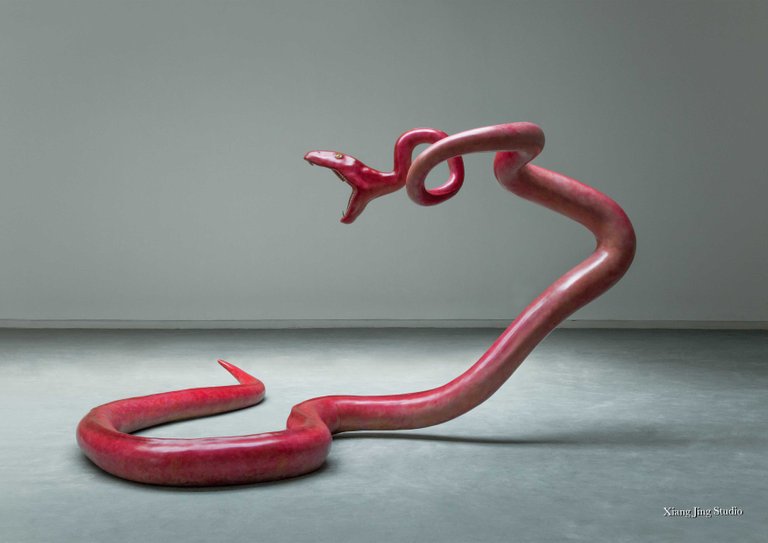

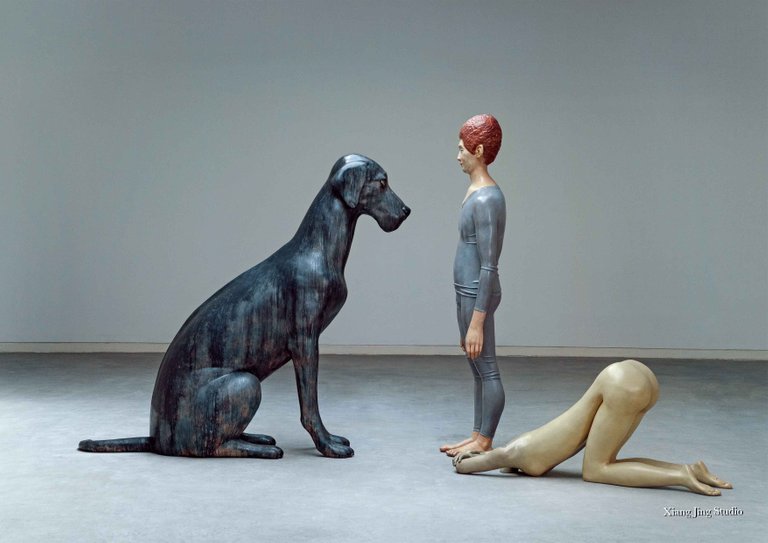
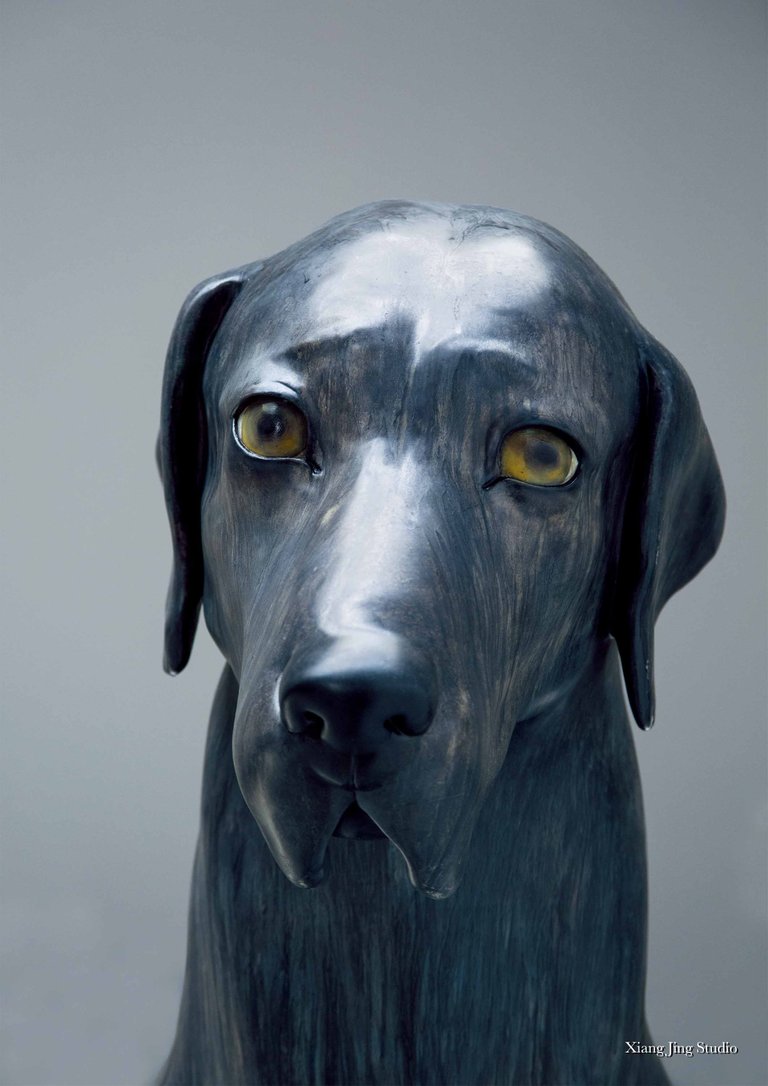
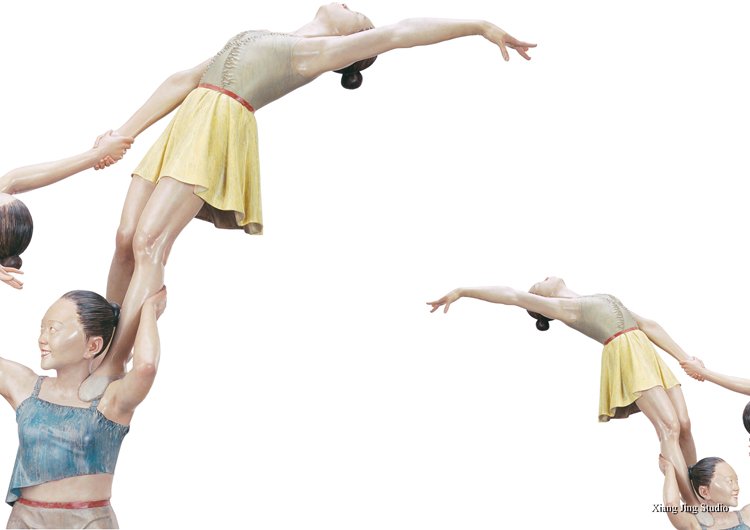
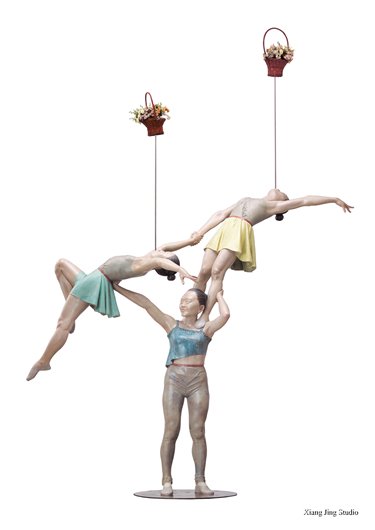
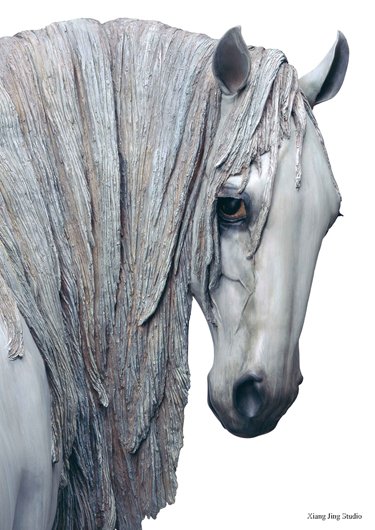
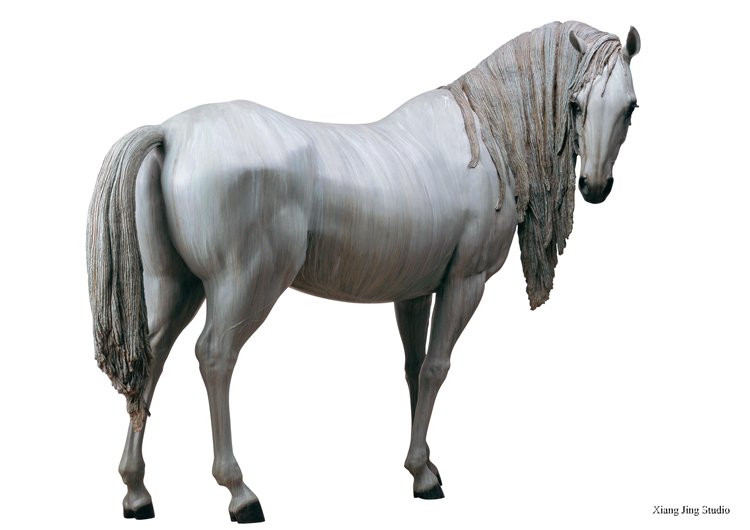

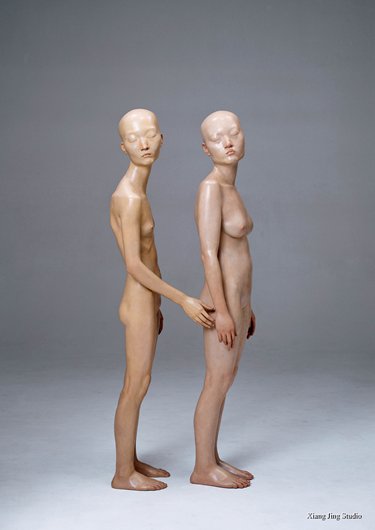
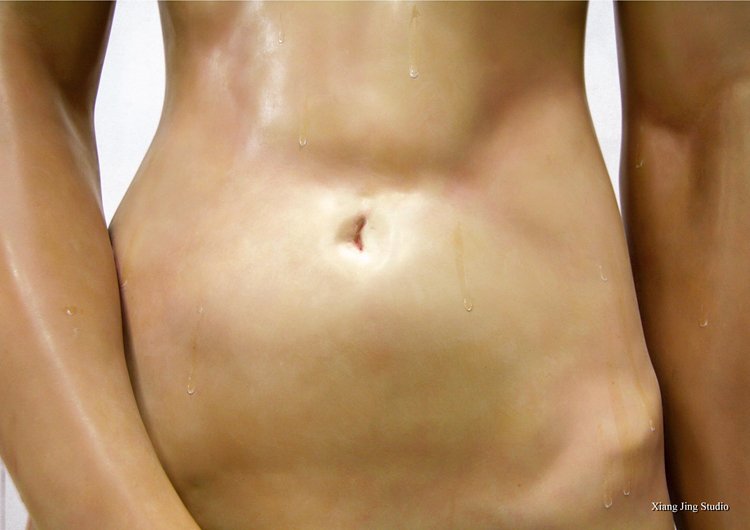
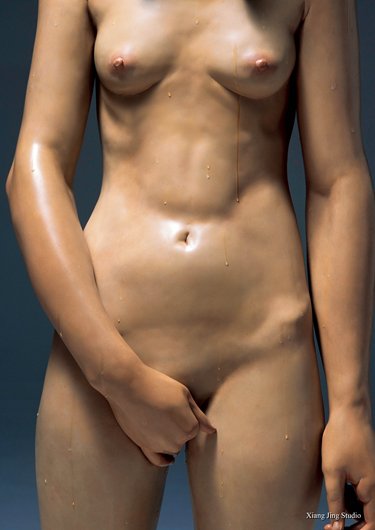
Is body a medium or the essence? I prefer the former. Body is often onstage but not always present. Body, as the medium through which life is sustained, has many qualities by its nature, such as mortality — long and tardy, from newborn to decay, till the inevitable discard after demise, fragility — unlike the heroic figures in Hollywood films, body hurts, sickens, ages, deforms… irreversibly, and activity — the various organs of a body, either internal or external, all have corresponding abilities and functions, and are always dynamic.
Body is private. Yet a body of public-ness can deal with the norms, transcend, and reshape them by innumerable means. Perhaps at a point in the future, I will come back to the topic of body again, while the focus of discussions could be directed to the bodies outside the norms. Certainly, I have always grudgingly abided the existing gender norms while conceiving, and composing.
Most of the metaphors for body originate in the norms of gender. Therefore, when the topic of body is brought to discussions, they are always confined in such a realm. Even when the norms are missing, we would still say, that it is a body above gender, beyond gender.
So far we are still heavily relying on this medium called body. Experiences are still the indispensible, first-hand materials for us. Though maybe in the future, even a future not too far away, virtual reality could take over the means of our perceptions from body, or in other words, we might be able to simulate even more perfected perceptions between body and reality. The very concept of substance could change as well. The virtual, via the perceptivity of our minds, could be more substantial than substance.
Cognition resorts to medium — when the medium alters, the cognition changes, alas, and even so does language. By then, we do not talk about substance, nor about, body.
BREAST
Breast – is it the breast with metaphors, or is it theones of the subject (In what sense do the breast of the subject carry meaning)? The concept of the subject itself is originated from the dualistic relationship of gender. So, how shall we look at these breasts?
THE DISAPPEARANCE OF GENDER
Even a body with female characteristics would not possess all the common features still. What, after all, is the so-called body, as it is commonly seen? How can a body be the subject of narration? Body functions both as the “donor” and the “donee.” Both the donor, the subject of narration, and the donee, the seen, can simultaneously belong to this same body. Which one is familiar to you? Would gender still exist in the narration of the subject?
MIRROR
There are so many ways to look, just like there are so many mirrors, and so many reflections. Within the languages of a body, it is the channel, through which we look, that renders us lookers. In the roles of lookers, however, who is the subject? How has such a substitution of lookers for the subject been subtly managed? Perhaps in the mirrors, we can see the boundary of norms more clearly, and see the body as norms; in the mirrors, one would learn to deal with the norms, using one’s own construction.
When we look at a body, when we shape a body, whose eyes is it that we are looking with? At such a moment, is the body taken up by the subject, or is it rendered the object as it is looked at? Body is normalized. Gender, from certain points of views, is a kind of norm. It normalizes women as woman, men as man.
BODY AS SCULPTURE AND SCULPTURE AS BODY
When I decided to re-photograph my works from the past, some of them, due to the distance in time and space, have more or less shown signs of estrangement. The relationship between an artwork and its environment has always been appealing to me, but this time I did not touch on that in photographs, as I wish to compose a group of pictures that are relatively more abstract.
Being surveyed anew, the features of body areemphasized. More importantly, these features have obtained a very strong textuality, correspondent to the many questions that I came up with after I had finished these works. Only at such moments, those old concepts appear not so well defined as before.
Perhaps, if one restores the sculptures back to body, their “meaning” would simply manifest itself, and their self-sufficiency would be more prominent than ever.
I have forgotten about how I made these works for so long, save the moments when I pressed the shutter of my camera, that I could still catch a lingering sense of my bygone anxiety for gender consciousness. Yet my sculptures, they are still in a good state that is indeed, compared with myself, more essential, and more composed.
身体是介质还是本质?我倾向于前者。身体常常登场但不见得在场,身体作为生命存在的介质,带有许多与生俱来的属性,比如必死性(漫长缓慢地从新生到腐朽,以及不可避免的死亡后被弃用)、脆弱性(不是美国大片里的英雄之躯,身体会受伤、生病、衰老、变形……它的脆弱性是无法修复的)和能动性(身体的各个器官,内在的和外在的,都有很多能力和功能,它们总是动态的)。身体是私人的,但作为公共性的身体,能以无数方式对付规范、超越规范、重塑规范。也许在未来的时间里,我会重新回到身体的话题,而讨论方向可以是那些规范之外的身体,确实,我总是既在而又不情愿遵循既定的性别规范而思,而动。身体的许多隐喻,多是在性别的规范里生成,所以在讨论身体话题的时候,总要绕在性别这个界定里,哪怕是不在了,我们也说,那是在性别之外的,超越性别的身体。到现在为止,我们还严重依赖这个叫做身体的介质,经验依然是我们不可或缺的一手材料,可也许未来,不见得很久的未来,虚拟的世界可能取代我们通过身体去感知的方式,或者说在身体与真实世界之间,我们还可以有办法去模拟比现实更完美的感知,实体的概念也会改变,虚拟在我们大脑的感知力里,会比实体更实。认知要通过媒介,媒介变了,认知就会变。对啊,连语言都会变了,那时,我们不说实体,也不说,身体。
乳房
乳房,是带有隐喻的乳房,还是主体的乳房(主体的乳房有何意义)?主体概念本身也是在性别二元关系中产生的。所以,我们现在怎么去看这些乳房呢?
消失的性别
带有女性特征的身体,仍然不具备惯常的属性,那么那所谓习惯中被看到的身体是什么?身体如何作为诉说的主体?身体具有“施与”与“被施与”的双重角色,作为诉说的主体的施与者和作为被观看的被施与者,可以同属于这个身体。哪个是你熟悉的?性别,在主体诉说里,还存在吗?
镜子
有那么多的观看方式,就像有那么多的镜子,那么多的镜像。身体的语言里,是我们观看的管道,能把我们推到观者的位置,而在观者的位置上,谁是主体呢?这个置换是如何被微妙地把控的呢?也许在镜子里,我们能更加清晰地看到规范的边界,看到作为规范的身体,以及得知如何对付这些规范,用你自己的建构。
当我们在观看身体、塑造身体的时候,我们是用谁的眼睛?此刻身体是被合并成为主体,还是化作被观看的客体?身体是被规范的,性别从某种角度讲,是种规范,它规范了女人之为女人,男人之为男人。
作为雕塑的身体和作为身体的雕塑
在选择重新拍摄过去的作品的时候,已经由于时间和距离的拉长,这些作品都多少现出了陌生的模样,作品和环境的关系,是我一向感兴趣的,但这次没拍,想做一批相对抽象含义的照片,在镜头里,雕塑被当做身体本身来拍的,所以是哪件雕塑以及哪年做的都已经不重要了,在重新的审视里,身体的属性被强调,重要的是,这些属性已经具有很强的文本性,契合了许多的在这些作品完成之后想到的问题,也只有此刻,原本那些概念,也没那么整齐,也许把雕塑还原为身体,它们的“含义”自己会有显现。它们的自足性,也比以往更鲜明,我早就忘了当初是怎么做它们的,只在按动快门的时候,重新在它们身上捕捉我还没散去的对于性别意识的焦虑。而它们的状态,实在比我,更本体,更从容。
http://art.china.cn/voice/2015-03/09/content_7731864.htm
我又發現你轉載其他人的文章
这是向京老师个人的自述。